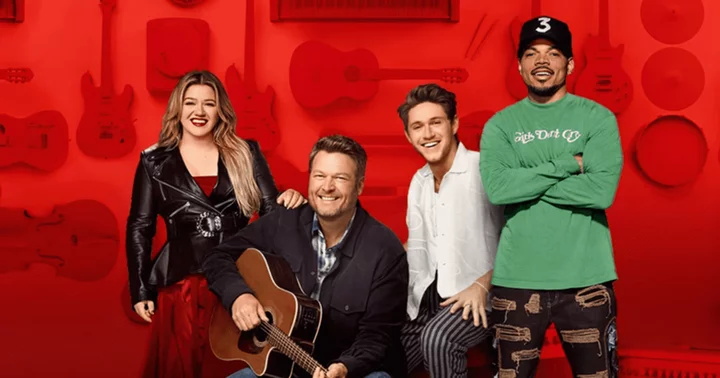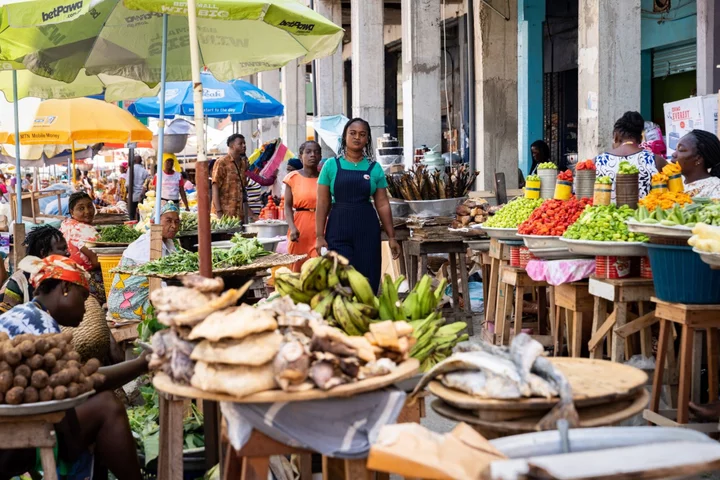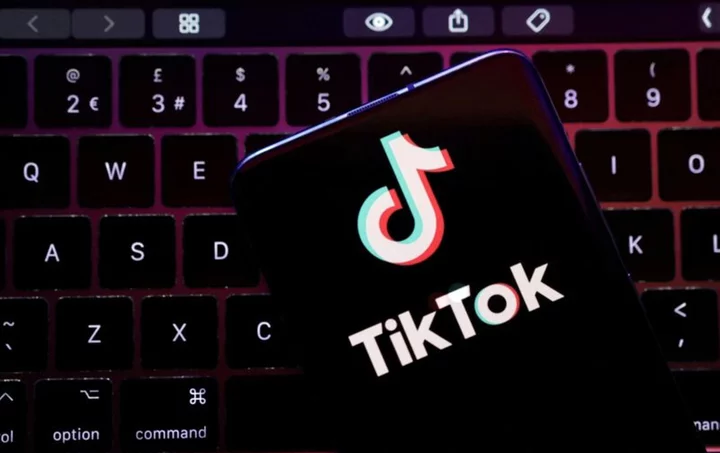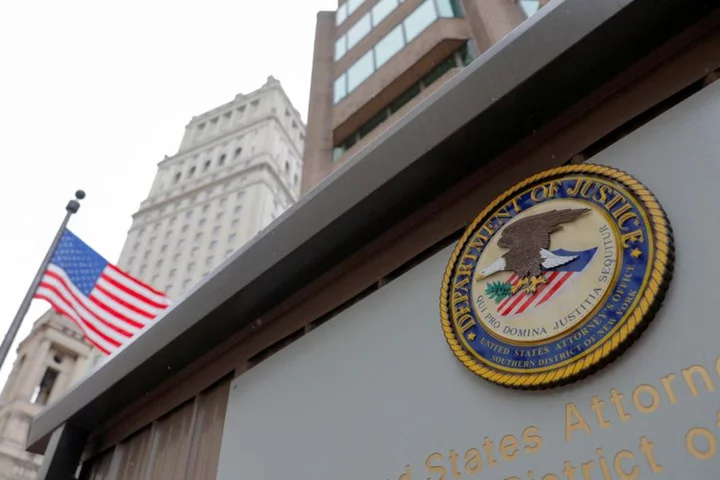
Ollie Watkins winner sees Aston Villa down 10-man Chelsea at Stamford Bridge
Chelsea went down to a third Premier League defeat of the season as Aston Villa won 1-0 at Stamford Bridge after Malo Gusto was shown a second-half red card. Villa broke away and scored through Ollie Watkins 17 minutes from the end, and though the 10 men laboured gainfully to get back into the game their goalless run in the league under Mauricio Pochettino stretched to three matches as they remained 14th. Chelsea were on top and looking far the likelier to score when a pitchside VAR decision just before the hour mark turned proceedings against them. Gusto had slid in on Lucas Digne and caught the defender on the ankle, and a yellow card was quickly upgraded to red for dangerous play. Pochettino’s side continued to attack in numbers and it would prove their undoing, Watkins outfoxing Levi Colwill to score on the rebound after the 10 men had poured forward, as Villa won for the second season running in front of an audibly frustrated home support in west London. Chelsea opened with a greater attacking purpose than they had shown in recent scoreless outings against Nottingham Forest and Bournemouth. After four minutes, Moises Caicedo took a chance and drilled low and hard from distance into the gloves of Emiliano Martinez, a comfortable enough save for Villa’s goalkeeper but an early show of intent from the home side. Raheem Sterling and Mykhailo Mudryk were heavily involved during the opening 15 minutes, finding space without the ball and attacking Villa down either flank when in possession. Nicolas Jackson too showed pace and power through the middle as Chelsea threatened from all angles. But it was Villa, increasingly stretched at the back, who nearly took the lead and in the most spectacular fashion after 20 minutes. Douglas Luiz’s corner was only partially cleared, and the ball dropped out of the air to the waiting Digne who whacked an audacious looping volley from all of 35 yards that Robert Sanchez brilliantly tipped over the bar. Chelsea had not scored in the league since August but here they played through Villa with a confidence that belied their modest goal return of five under Pochettino. Mudryk tucked a superb ball in behind the defence for Jackson to run on to, the striker’s cunning to find space matching the brilliance of his teammate’s vision. Jackson went for the near post and Martinez turned it behind, but it was as fine an attacking move as Stamford Bridge had witnessed this season. Enzo Fernandez should have broken the deadlock when he shot first time from Gusto’s pull-back, the Argentinian failing to make the best of a good opening after Gusto had stretched every sinew keeping the ball in play. Sanchez saved acrobatically from Nicolo Zaniolo’s volley as Villa came on strong late in the half. At the other end Mudryk capped a lively first period when he raced away from Matty Cash and zipped the ball low across goal only to find that nobody in blue had gambled. Sterling began the second period as he had ended the first, racing away from Villa down the right and trying to tuck the ball inside Martinez’s near post. The goalkeeper spread himself well to smother, but Chelsea’s threat was growing. Then came a moment to turn to the tide of that pressure. Gusto’s challenge on Digne was late and caught the Villa defender on the ankle. The initial decision was yellow card, but a pitchside VAR review saw it upgraded to a red as boos rained down on the referee from home fans. The sending off did not drastically alter the course of things at first, Chelsea’s pressure on Villa’s defence remained. Yet it was ultimately to be their undoing. There seemed to be little on when Villa won the ball back high in the Chelsea half. One ball released Moussa Diaby who dashed into the space left by Gusto’s departure, and in a flash he fed Watkins. Colwill seemed to have things under control when he slid to block Watkins’ initial shot, but before he could recover and clear the Villa striker had taken up the ball and lashed his second effort past Sanchez from an angle and in off the far post. Ben Chilwell on as a substitute missed when one-on-one with Martinez, then moments later Axel Disasi, now moved out to right-back, burst into the box and skewed horribly wide as he lashed at his shot. Jacob Ramsey tested Sanchez when he stepped inside and curled towards the bottom corner, this time the goalkeeper finger-tipped the ball to safety. By then, Chelsea’s attacking rhythm had been critically disrupted, and Villa saw the win out amid a chorus of discontent around Stamford Bridge. Read More Charity boss speaks out over ‘traumatic’ encounter with royal aide Ukraine war’s heaviest fight rages in east - follow live Darwin Nunez on target again as Liverpool topple West Ham at Anfield Son Heung-min brace earns Tottenham a point at Arsenal Brighton secure comeback win over Bournemouth thanks to substitute Kaoru Mitoma
2023-09-24 23:56

Six Gladiator crew members rushed to hospital after explosion on set
Six 'Gladiator 2' crew members were reportedly rushed to hospital after an on set explosion, according to The Sun newspaper.
2023-06-10 15:24

Fulham confirm signing of Raul Jimenez from Wolves
Raul Jimenez has completed his move to Fulham from Wolverhampton Wanderers.
2023-07-26 15:27

Browns tackle Joe Thomas was an iron man, Cleveland's own on his NFL journey to the Hall of Fame
Joe Thomas was always there for the Cleveland Browns
2023-08-02 23:24

Canadian Senate passes bill requiring Google, Meta to pay for news
A Canadian bill that will require Google and Meta to pay media outlets for news content that they share or otherwise repurpose on their platforms is set to become law
2023-06-23 05:21

Musk hosts Twitter event for anti-vaxx Democratic candidate RFK Jr.
By Nandita Bose and Kanishka Singh WASHINGTON Elon Musk on Monday hosted Robert F. Kennedy Jr., the anti-vaccine
2023-06-06 04:50

Pep Guardiola offers update on Ilkay Gundogan contract talks
Pep Guardiola has revealed the latest on Ilkay Gundogan's contract talks as Barcelona continue to push for a deal.
2023-06-04 16:15

What day and time will 'The Voice' Season 23 Episode 18 be out? Top 3 finalists gear up for the grand finale
Mark your calendars for the exhilarating 'The Voice' Season 23 finale, where the top 3 finalists prepare to take the stage one last time
2023-05-23 10:29

Ammon Bundy ordered to pay $26 million to Idaho hospital, its CEO and 2 staff members
Ammon Bundy, the Idaho-based anti-government activist who captured national attention seven years ago when he led an armed occupation of federal land in Oregon, has been ordered to pay $26 million dollars to a Boise hospital, its CEO, a doctor and a nurse practitioner.
2023-07-27 09:56

Who is Stephen Termini? NY dad suffers life-changing injuries after being attacked by teens on 'dream trip' to Ireland
Termini was beaten and kicked repeatedly by a group of violent juveniles as he left his accommodations in the troubled neighborhood
2023-07-25 20:26

Australia Voice Referendum Defeated After Divisive Campaign
Australia has voted against including First Nations people in the country’s constitution, projections show, rejecting a proposal to
2023-10-14 17:45

Ghana’s Surprise Uptick in Inflation May See Rate Hikes Return
Ghana’s inflation rate unexpectedly rose in May, adding pressure on the central bank to resume rate hikes next
2023-06-14 18:28
You Might Like...

Exclusive-TikTok, YouTube, Meta eye Indonesia e-commerce licenses- sources

Schwarber hits 483-foot homer, 4 other Phillies homer to lead Phillies over Braves 7-1

US prosecutor who targeted spoofing misconduct leaves DOJ

'The Five' hosts claim Foreign Relations Committee facilitates corruption in wake of Bob Menendez indictment

5 bold predictions for the 2023-24 ACC Men’s Basketball season

‘Absolute Legend!’ Fans in awe as Peter Cullen voices Optimus Prime one last time in ‘Transformers: Rise of the Beasts’

Lakers coaching history, records, championships & more

All Blacks give defensive masterclass to knock out Ireland at Rugby World Cup
